The long awaited Ten-Foxtel deal means a third 800 pound gorilla has entered the jungle
 Ten has finally reached a refinancing deal, which will see Foxtel take a stake if it passes regulatory hurdles over the coming months. The convoluted process has been good for the network’s fortunes, argues Mumbrella’s Tim Burrowes.
Ten has finally reached a refinancing deal, which will see Foxtel take a stake if it passes regulatory hurdles over the coming months. The convoluted process has been good for the network’s fortunes, argues Mumbrella’s Tim Burrowes.
Back before Christmas, somebody well informed shared an unlikely view on Ten with me.
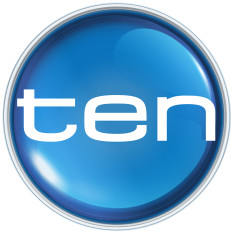
I voiced the obvious view that the process looked likely to be a destabilising distraction for the management.
Not so, this well informed person argued. The management had a plan in place for the 2015 ratings year, now they just needed a breathing space to execute it. The last thing the network needed was yet another change of direction from a new owner.
I think this person has been proved right.
After nearly five years of blunders (firing CEO Grant Blackley and programming boss David Mott, the attempt to directly take on Nine and Seven with the likes of The Renovators and Everybody Dance Now, the unsuccessful James Warburton era, and the two failed forays into breakfast amongst others), I can’t think of a major strategic mistake Ten has made in 2015.
Instead, the hallmark of the strategy, and the schedule, has been the stability and consistency that were previously lacking.
With Foxtel as its new big brother, Ten has the potential to once again become a network that its rivals fear.
The seeds have been in place for more than 12 months.
In 2014, three or four key things happened.
Second, Masterchef got back on track. The previous year a gimmicky boys versus girls theme turned loyal viewers against the show and ratings fell accordingly. While Masterchef ratings never quite returned to their second season peak, they were solid, as they are again this year.

Family Feud – seemed like a stupid idea but worked
And third, Family Feud launched successfully.
Now it’s a mainstay of the Ten schedule, it’s easy to forget what a stupid idea Family Feud seemed. At the time, I thought it was a terrible plan – a nearly 40-year-old-format and in Grant Denyer a presenter who’d left Seven under a cloud, to say the least. I was wrong.
Sneakily, Ten introduced a new tactic which has since been copied by rivals Seven and Nine – simulcast it on secondary channels Ten and One. As a result, it rated just well enough.
It’s now a mainstay, and a distinctive alternative to the news bulletins on Nine and Seven. It never beats them, but it gives Ten an audience that builds into The Project.
This slow, patient rebuild is epitomised by The Bachelor, another ancient (in TV terms) US format.
The first series, which came to Ten in 2013, was well marketed but didn’t set the ratings on fire, although it did perform well in the young female demographic.

Bachelorette-to-be Sam Frost
Then came the second series. Again, it rated okay, and built as Blake finally popped the question to Sam Frost.
But it exploded as a social media-driven story after the finale, when Blake dumped her. The headlines and TV coverage were huge.
But the ratings benefit of this will only show up when the next series airs later this year. Indeed, the benefit of creating this new franchise will also be demonstrated later in the year when jilted Sam returns in a spin-off as The Bachelorette.
You may turn your nose up at reality TV, but it’s smart mass scheduling.
I think we may see a similar trajectory for I’m A Celebrity (Get Me Out Of Here).
 The first series of this ITV Studios reality format went well enough. While it rarely won the night, it kept Ten more competitive in the ratings than it had been.
The first series of this ITV Studios reality format went well enough. While it rarely won the night, it kept Ten more competitive in the ratings than it had been.
This first year it was a fight to get the celebs on board. Next time round, I suspect they’ll be knocking at the show’s door to get into the jungle. I’m certain we’ll see further ratings growth for the show.
Former Seven boss David Leckie used to talk about bricks in the wall. Now Ten’s got Masterchef, Celeb, Family Feud, The Bachelor, The Project and, outside of primetime, Studio 10. That’s not a bad place to start from.
This year, the humiliations on some days of finishing behind secondary channels in certain cities were eradicated.
Ten may also benefit from the life cycles of some of Ten and Seven’s key shows.
For Seven, My Kitchen Rules was still a beast, but fading. The X Factor was much weaker. US import Revenge, which was huge in its first couple of seasons, was cancelled in April.
On Nine, The Voice – which kicked off the network’s turnaround in 2012 – also looks to be running out of steam, although we’ll know more after it returns for a fourth time shortly. Even The Block, with its record breaking prize in April, shows signs of being over-used.
The trend was well demonstrated last month on one of the most important ratings junctions of the year.
The return of Masterchef blew House Rules and Nine’s spoiler Reno Rumble out of the water. It delivered for Ten that rarest of things – a win in all people and the key demographics too.
Two or three years back, there was a sense of panic about the place. That’s no longer the case. My impression at Ten now is an air of calm. The cost-cutting seems to have been completed and the survivors are getting on with it.
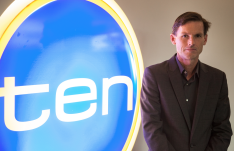
Ten marketing chief McGrath
The management team have been battle-hardened. I get the sense that chief programming officer Beverley McGarvey is working more closely and effectively with marketing boss Matt McGrath than is often the case in programmer-marketer relationships. That’s resulting in both more focused programming decisions and more effective marketing.
Which isn’t to say that everything is now going to be brilliant for Ten. Its rivals still have deeper pockets, better resources and twice as much revenue.
It will be interesting if we see more joint commissions between Ten and Foxtel like Gogglebox, and more rights sharing like Formula One.
And advertising industry sentiment is still sceptical about Ten. It may be a long time before Ten starts to significantly grow it 20% share of ad revenue. The media agencies were asked for too long to stick with the network as a leap of faith and didn’t enjoy looking silly in front of their clients when they did so and ratings didn’t improve.
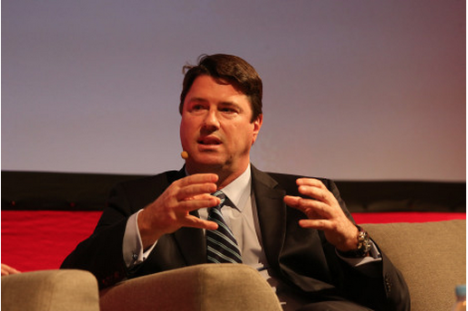
McLennan: Exceeded expectations
And while boss Hamish McLennan has steadied a desperately wobbly ship – certainly exceeding my expectations in what a non-TV guy could do in the top role – he’s still not earned a reputation as a people person. People sometimes seem a little puzzled by his ability to recruit and retain the key lieutenants he has, despite that. Money alone cannot be the entire explanation. He’s done more than enough in the role now to earn the respect of the sceptics.

Melbourne GM Howcroft
The most obvious next big step forward would be winning some NRL or AFL rights, which are both up for grabs at the moment. It won’t do any harm having the well connected, and well respected, Russel Howcroft as Melbourne GM during this process.
But that battle takes money, which is the biggest challenge Ten faces right now, particularly until the regulatory hurdles for the Foxtel deal are cleared.
By the end of April, the network was already $105m into its $200m overdraft. By the time the deal is done – which Ten says will be October – the $77m raised from Foxtel and further $77m from existing owners, will mostly be spent on reducing that debt. The overdraft will then be used to bid for the sports rights, which are essential for further ratings growth,
If there is a media downturn, or if ratings tank again, then things could get tight if the regulatory process delays the deal.
And the deal cannot be treated as a certain thing unless the media ownership laws change in the coming months. Lachlan Murdoch already owns 9% of Ten directly. His family-led company News Corp, of which he is co-chairman, owns 50% of Foxtel. So the regulators will need to take a view on what Foxtel buying a further 15% of Ten means in practice.
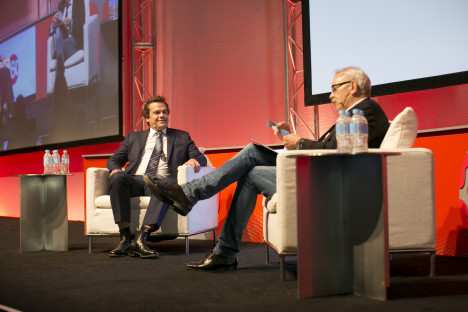
Murdoch on stage at Mumbrella360 with GroupM boss John Steedman
What is certain though is that Foxtel’s sales house Multi Channel Network will now run ad sales for Ten. In turn, Ten will take 25% stake in MCN.
The sales representation part of the deal is not dependent on regulatory approval and kicks off on September 1.
Having MCN as its saleshouse a win for Ten.
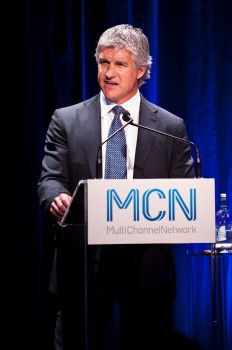 Led by CEO Anthony Fitzgerald (a former sales chief at Seven) and sales director Mark Frain, MCN is a slick operation. I’ve sat at the back of the room for MCN’s sales team of the year presentation at the Mumbrella Awards on a number of occasions; they come across as a well-trained, hungry team with a great sales growth culture.
Led by CEO Anthony Fitzgerald (a former sales chief at Seven) and sales director Mark Frain, MCN is a slick operation. I’ve sat at the back of the room for MCN’s sales team of the year presentation at the Mumbrella Awards on a number of occasions; they come across as a well-trained, hungry team with a great sales growth culture.
Better resourced than the Ten sales team and already pushing into programmatic, I would be astonished if MCN fails to grow the free to air network’s advertising share over the medium term.
It will also completely change the dynamic in the TV market. Rather than Seven and Nine dominating Ten and MCN, the tie-in will create a third 800lb gorilla. It’s going to be fascinating to see how the media agency buying groups react.
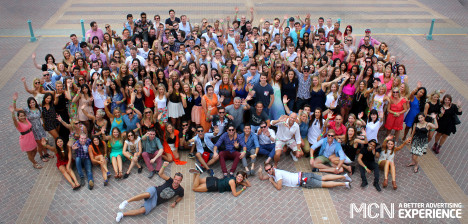
MCN: Well resourced team
If the usual rule of Australian business applies and there’s only room for two-and-a-half big players, you wouldn’t want to be at Seven or Nine if ratings falter.
That’s of course against the backdrop of TV being uncertain of hanging onto its revenues in the changing media landscape. Today’s annual PwC annual Outlook report suggests that the next five years will see free to air revenues flatlining at $3.8bn, which seems a little optimistic to me. TV won’t go on pulling in half of all advertising revenues for much longer. Too much fragmentation has already occurred, and will continue to occur.
But what Ten’s management has won is more time to work things out. And I’d never have believed that a couple of years ago.
- Tim Burrowes is content director of Mumbrella
Postscript: This piece was originally published back in June and has been republished in light of today’s approval of the Ten-Foxtel deal by the ACCC and ACMA.



 Linkedin
Linkedin
We certainly need to 10 to keep the other two on their toes!
User ID not verified.
Let’s hope the ownership laws don’t change. The last thing we need is more exposer to the Murdoch voice in our news sources.
User ID not verified.
@Ownership you are going to get a hell of a lot more “exposure to the Murdoch voice” as another commented here and they’re right, news on right will eventually be run out of NewsCorp or will come from Sky News – Foxtel IS Murdoch let’s not pretend it’s not.
User ID not verified.
I’m not sure what your point is Lucky Phil. At the end of the day the laws are there for a good reason. 10 came third but always made a profit 5 years ago. Its not a reason to change the laws.
User ID not verified.
What a great deal for all those shareholders who had Ten shares at north of $1.
Oh, wait …
User ID not verified.
My point Ownership is that Murdoch as just walked around the law… he hasn’t had to worry about making a full takeover offer, so company law and media regulations won’t matter. Murdoch will end up with complete control of TEN and from a minority position. The revenue generation is being outsourced to a Murdoch division, and Ten news will be eventually too just like what has happened with Meet The Press, you can bet on it Channel 5 in the UK outsource their news to ITV, it used to be Sky but Desmond and Murdoch had a huge falling out.
The law doesn’t matter to Murdoch, he’s found a way around it – that is my point. Ten news will become another Murdoch stream, unless this is stopped,but no one would dare do that.
User ID not verified.
Big Bash lost money every second it was on ; neither did it generate a “halo” of ratings – other program ratings _fell_ in the period.
Family Feud doesn’t win any ratings and MasterChef is getting lower figures than in the “bad” old days before McLennan.
User ID not verified.
do I push my free offering or my subscriber offering
where is my focus ? what is my plan for profitability
lots of Free Foxtel promotion and a plethora of regurgitated content for TEN ?
although they sell a a fair bit to 7mate already, so TEN becomes 7mate 2 ?
User ID not verified.
Lets watch the News Limited train now cover up past mistakes and rewrite history.
It is well known that getting rid of Falloon, Blackley & Mott was a mistake. Those guys were delivering big profits, had strong ratings and great shares of revenue.
Lachlan then landed a “home run” and lost 80% of the value of the company in a short 18 months. He bought into Ten at $1.50 a share when it was valued at $1.6b and now we talk about it be safe to buy at 20 cents !!!
Ten will now retrench a few hundred(s) people – move those workers left to Foxtel – and shareholders will sit wondering what is going on.
User ID not verified.
Lot of time and energy to spend on a redundant platform.
At least Murdoch can corner the blue hair rinse and life insurance markets.
User ID not verified.